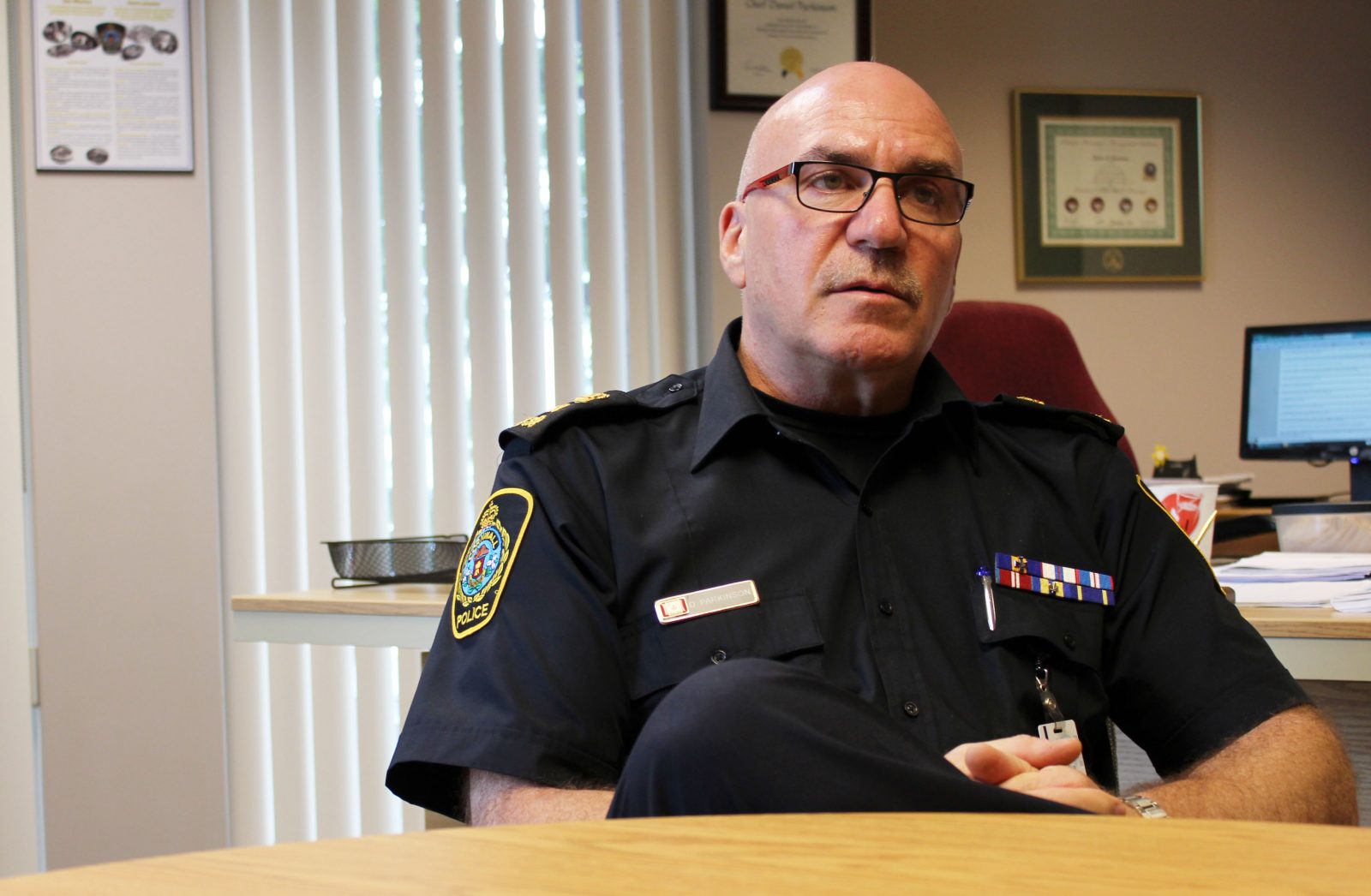By Adam Brazeau
CORNWALL, Ontario – Ontario police chiefs are pushing for changes to provincial legislation that enables suspended police officers to collect pay, even when they are suspended or facing criminal charges.
The result is millions of dollars are spent annually on police officers who aren’t on the job.
“The fact the issue has now come to the forefront allows us to look at other examples across Canada to see how they’re handling similar situations,” said Cornwall Community Police Service chief Dan Parkinson. “The fact that we’re last is unfortunate.”
Other reasons Parkinson is eager for change are to ensure money is being spent correctly in his department and that the public perception isn’t that cops are above the law.
“We have a responsibility to the community to ensure that police budgets are reflective of investments in things that matter,” said Parkinson. “Putting money into a suspended officer’s hands for years on end until the matter is finally resolved, I don’t think would fit well with the public.”
What Parkinson calls “a lack of legislation,” allows officers who have been convicted of an off-duty crime to still receive pay as they wait for their court verdict, which could take years in some cases.
“It’s time for a sober look at the Police Act that we have to deal with and to ensure it gives us the tools to act responsibly as police chiefs so we can deal with very specific situations,” said Parkinson.
Parkinson also wants the definition of a serious criminal offence for an off-duty officer to be established and agreed upon in newly-revised legislation. “There has to be a distinction to what happens on-duty and what happens off,” he said.
Currently, the Cornwall service has one officer on suspension with pay, of its 90. In December 2012, Const. Pascal Rossignol was charged with invitation to sexual touching, child luring on the Internet and two counts of prostitution of a person under the age of 18. Rossignol had worked with the CCPS since 2007. The Cornwall police were first made aware of allegations against him in Oct. 2010.
The Ontario Association of Chiefs of Police issued a document in regards to the changes needed in 2007. Six years later, Parkinson is ready to see some movement on the matter. He also stated that he understands on a legislative level it takes time to implement changes of such magnitude.
“The fact is… a police officer can be charged with a serious criminal offence – as high as murder – in an off-duty situation and yet cannot be suspended or terminated from employment until that case is finished in court,” said Parkinson. “The problem we have to wrestle with is, what’s fair? Innocent until proven guilty still has its place in the lives of off-duty police officers committing serious offences.”
Parkinson hopes that changes are done well and made to last.



